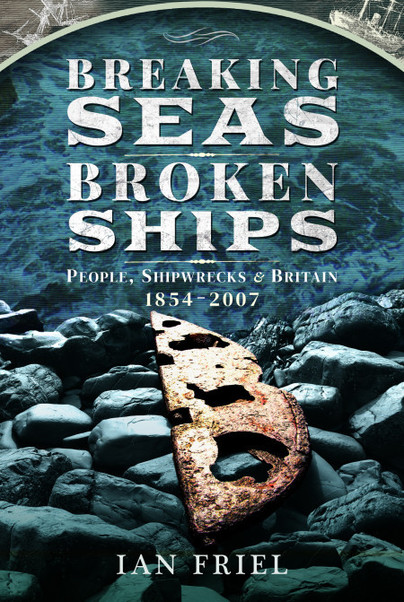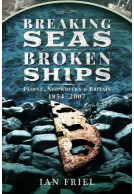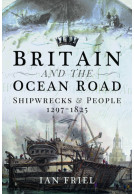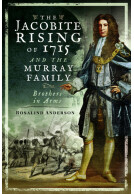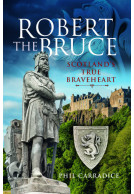Breaking Seas, Broken Ships (ePub)
People, Shipwrecks and Britain, 1854–2007
Imprint: Pen & Sword History
File Size: 17.2 MB (.epub)
Pages: 176
Illustrations: 50 black and white illustrations, maps and line drawings - 1 x 16 pp of illustrations and integrated maps and line drawings
ISBN: 9781526771513
Published: 30th March 2021
Award
'Short listed for the Mountbatten Maritime Literary Award, 2021'
| Other formats available | Price |
|---|---|
| Breaking Seas, Broken Ships Paperback Add to Basket | £12.79 |
| Breaking Seas, Broken Ships Hardback Add to Basket | £25.00 |
Following Britain and the Ocean Road, Ian Friel expertly navigates the history of Britain and the sea from the Middle Ages to modern times. With Breaking Seas, Broken Ships, we follow the story of Britain’s maritime history through some of it’s most dramatic shipwrecks. From the country’s imperial zenith to the very different world of the early twenty-first century we encounter an extraordinary range of people, ships and events, including…
the crew and passengers of a state-of-the-art Victorian steamship who vanished in the Atlantic;
the sailors of a doomed collier brig in the dying days of sail – and the wives and children they left behind;
a lowly ex-naval stoker who went into showbiz with his version of a disaster caused by an admiral;
a First World War merchant ship captain who fought a running battle with German U-Boats;
the courage and compassion shown by British sailors who escaped their dive-bombed ships;
the people who confronted the ‘black tide’ left by the oil tanker Torrey Canyon;
how the container ship has helped to make a new world for us all – for better or worse.
With people at the heart of every chapter, it explores major environmental themes alongside the traditional concerns of maritime history, such as trade, social issues and naval warfare. Their experiences tell us the story of Britain’s maritime past, one that is remarkable, moving and at times horrifying. Based on brand new scholarship, it is perfect for history enthusiasts, professional historians and archaeologists alike.
"Breaking Seas, Broken Ships is not just about severe weather and lost ships, it is also about personal tragedy and courage, on occasion sprinkled with downright hilarious detail. A joy to read."
The Northern Mariner/Le marin du nord (Vol. 33, Nos 3 and 4).
Breaking Seas is the successor volume to Britain and the Ocean Road, which covered the period from the 13th century to the 1850's, and which takes the story on to the present day. It follows the same format, selecting eight shipwrecks and using them each to illustrate a different aspect of British maritime history. The term shipwreck is used loosely to cover any type of maritime disaster. The book begins with the disappearance of the migrant ship City of Glasgow. Nobody knows what happened to her, she just failed to arrive in Canada, but the event (or non-event) is the peg on which to hang a chapter on 19th century migrant ships.
Edward James - Historical Novels Review
I found this formula rather frustrating with the earlier volume but was happier this time, perhaps because I knew what to expect. The final chapter about the wreck of the container ship Napoli in 2007 is particularly interesting for it essay on the container revolution in cargo handling, while the wreck of the Torrey Canyon leads to a discussion on pollution. An interesting and informative little book.
"Expertly researched, the book quickly immerses the reader into the narrative, and a smattering of maps, charts and vessel designs support each ‘case’."
The Nautilus Telegraph, November 2021 Issue.
Breaking Seas Broken Ships presents a succinct overview of Britain’s maritime history through the nineteenth, twentieth, and twenty-first centuries. It uses seven lesser-known shipwrecks to provide this overview and illuminates their interconnectedness to various aspects of Britain’s imperial power, society, and overall relationship with the sea. Friel’s accessible writing style and the broad swath of evidence for each wreck and British society prove successful in discussing the strength and eventual fall of British sea dominance. Breaking Seas Broken Ships is a great continuation volume of the story of Britain’s relationship with the sea from Britain and the Ocean Road, providing a full picture of the intricate relationship of Britain and the sea while leaving room for future growth.
Nautical Research Journal
The author follows Britain’s maritime history from 1854 to 2007 through some of its most dramatic shipwrecks. From the country’s imperial zenith to the very different world of the early twenty-first century – an extraordinary range of people, ships and events, including the crew and passengers of a state-of-the-art Victorian steamship who vanished in the Atlantic; the sailors of a doomed collier brig in the dying days of sail – and the wives and children they left behind; a lowly ex-naval stoker who went into showbiz with his version of a disaster caused by an admiral; a First World War merchant ship captain who fought a running battle with German U-Boats; the courage and compassion shown by British sailors who escaped their dive-bombed ships; and the people who confronted the ‘black tide’ left by the oil tanker Torrey Canyon.
Julian Stockwin
The book includes an extensive bibliography and notes as well as fascinating photographs; the cover is a poignant image of the underwater remains of the rudder of SS Hoche, a steamship wrecked in North Devon in 1882.
Read the full review here
The powerful human stories behind our "broken ships"
Chichester Observer 06/05/21
Featured in
Current Archaeology - Issue 377, August 2021
A fascinating reflection on Britain's maritime history including trade, warfare, social and environmental issues from the middle ages through to modern times. This book covers a range of ships, people and disasters/ wrecks. It really was quite moving at times but then harrowing too and at many points I paused to think it over.
NetGalley, Kelly Furniss
Such a interesting read for anyone who has a interest in this genre.
The author diligently identifies his sources throughout thereby demonstrating how multiple records are required to piece together the tragic tales of our forebears who were lost at sea. A very readable account.
WDYTYA? Magazine July 21
Very interesting and informative... an Friel tells as great story.
ARRSE (Army Rumour Service)
Read the full review here
"An interesting book with a strong narrative approach. He also manages to avoid dense nautical terminology and minutiae without feeling ‘dumbed down’ or simplified… Any audience with even a limited maritime interest can tackle this book without needing to reach for the assistance of Wikipedia or Google… All eight of the chapters present interesting and well-assembled narratives of different facets of seafaring."
Jack Pink, The Mariners Mirror
"An enjoyable read."
Bob Dean, The Ton Class Association
I found this book to be a good read, full of information and brilliantly researched. The author dropped some really good points in about shipbuilding throughout the chapters, showing just how much the seas and those that sail them have changed throughout the years.
NetGalley, Claire Smith
Rating: 5 out of 5 stars
NetGalley, Ron Baumer
A great book with interesting stories. The author does an amazing job of presenting each story. The stories have great details and background of the events. It was extremely hard to put down. A must read for those who enjoy true stories of the sea disasters.
About Dr Ian Friel
Dr Ian Friel is a maritime historian with an international reputation and wide experience of historical and archaeological work, including the 17th-century Swash Channel Wreck (which he successfully identified as the Fame of Hoorn) and studies of sunken First World War tankers for an environmental project. He worked in museums for many years, including the National Maritime Museum, Greenwich and the Mary Rose Trust, and became an independent historian, museum consultant and writer in 2007. He has broadcast on TV and radio, and most recently undertook research for an episode of BBC TV’s Who Do You Think You Are? Ian is the author of The Good Ship, The British Museum Maritime History of Britain and Ireland, Henry V’s Navy and Britain and the Ocean Road, along with many papers, reports and other publications.







